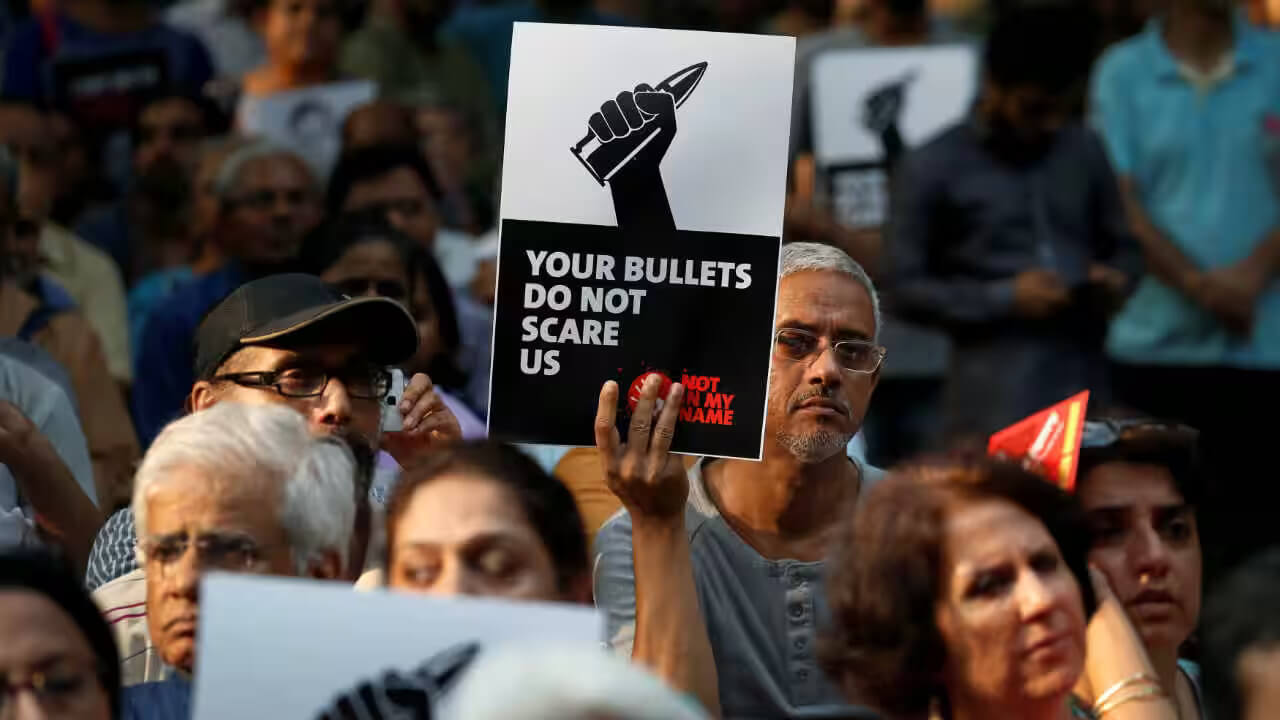Global press freedom watchdog Reporters Without Borders (RSF) released the World Press Freedom Index Ranking, placing India at 161 out of 180 countries. India has slipped 11 places as compared to its ranking last year, when it ranked 150 in the index.
Situation of Press Freedom in India
Justifying its low ranking of India, the RSF stated that “the world’s largest democracy” has been facing a press freedom crisis since Indian PM Narendra Modi’s rise to power in 2014. To support this claim, it cited reports of violence against journalists, the “politically partisan” Indian media, and the “concentration of media ownership.”
It said that even though the country has many media outlets, the companies are owned by four giants — the Times Group, HT Media Limited, The Hindu Group, and Network18. These groups hold ownership of a majority of the country’s national, Hindi language, and regional media houses.
🔴 #RSFIndex RSF unveils the 2023 World Press Freedom Index:
— RSF (@RSF_inter) May 3, 2023
1: Norway 🇳🇴
2: Ireland 🇮🇪
3: Denmark 🇩🇰
24: France 🇫🇷
26: United Kingdom 🇬🇧
45: United States 🇺🇸
68: Japan 🇯🇵
92: Brazil 🇧🇷
161: India 🇮🇳
136: Algeria 🇩🇿
179: China 🇨🇳
180: North Korea 🇰🇵https://t.co/5hHMzwc8KJ pic.twitter.com/Ji3HZcCywo
The report also highlighted that these companies and the Modi government have an “openly mutually beneficial relationship.”
The RSF further criticised the large number of criminal cases against journalists and the lack of diversity in the field.
The worst drop for India was in the Security indicator — one of the five factors the index relies on. Here, it ranked 172 out of 190, highlighting that only eight countries are doing worse than India in securing the rights of journalists.
While the government is yet to respond to the recent rankings, last month, Information and Broadcasting Minister Anurag Thakur said that India “does not subscribe to [RSF’] views and country rankings and does not agree to the conclusions drawn by this organisation.” He criticised the group’s methodology, particularly its small sample size in drawing its conclusions.
RSF Rankings
Paris-based RSF releases the report annually to compare the levels of press freedoms worldwide. To this end, it scores countries on five indicators: Political, Economic, Legislative, Social, and Security.
World Press Freedom Index Rank of India
— Dhruv Rathee (@dhruv_rathee) May 3, 2023
2016 - Rank 133
2017 - Rank 136
2018 - Rank 138
2019 - Rank 140
2020 - Rank 142
2021 - Rank 142
2022 - Rank 150
2023 - Rank 161
Currently, North Korea is the last ranked country at Rank 180
While India performed poorly in this year’s ranking, other countries in South Asia did relatively better. For instance, Pakistan went up from 157 in 2022 to 150. Meanwhile, Sri Lanka also improved from 146 to 135. Even war-torn Afghanistan performed better than India at 152. With a rank of 90, Bhutan is the best-performing country in the region.
However, Bangladesh performed worse than India at 163.
Norway, Ireland, and Denmark secured the top three positions, respectively. Whereas, Vietnam, China, and North Korea were the three worst countries for press freedoms.

